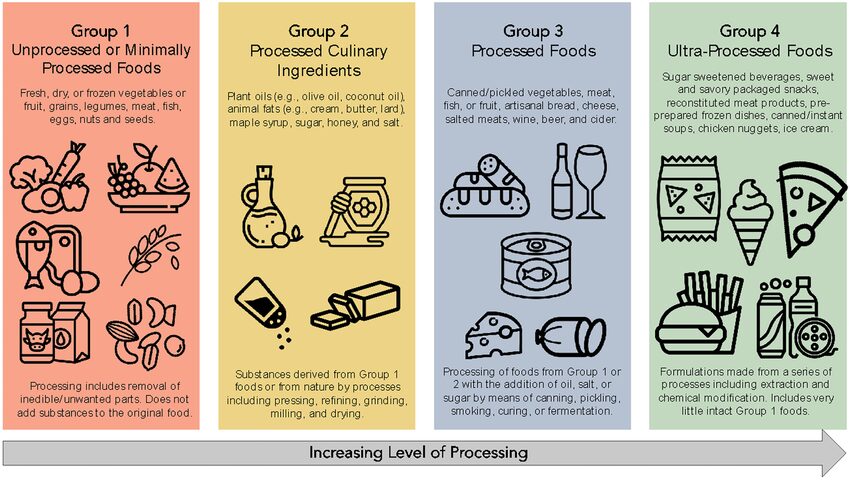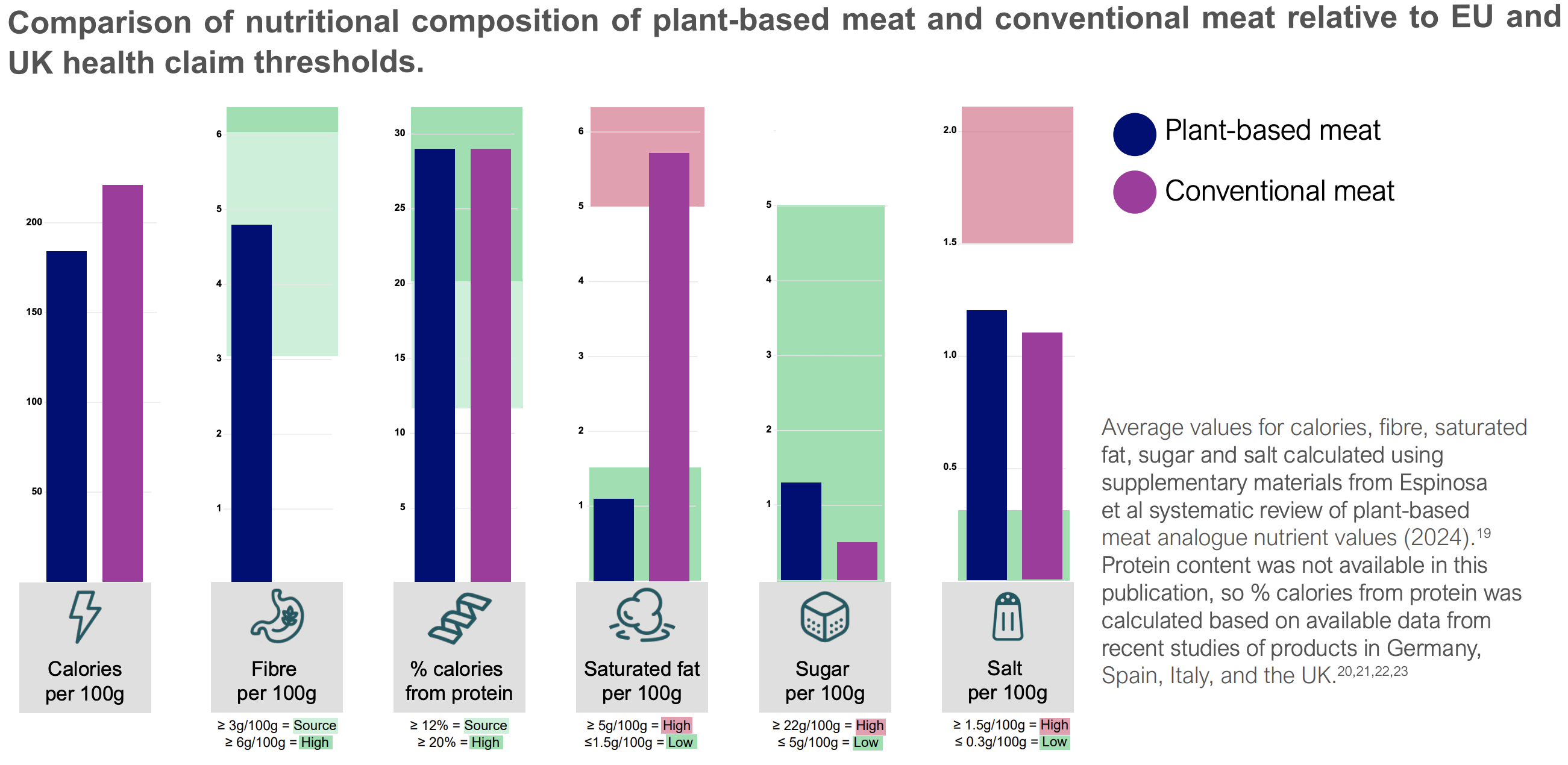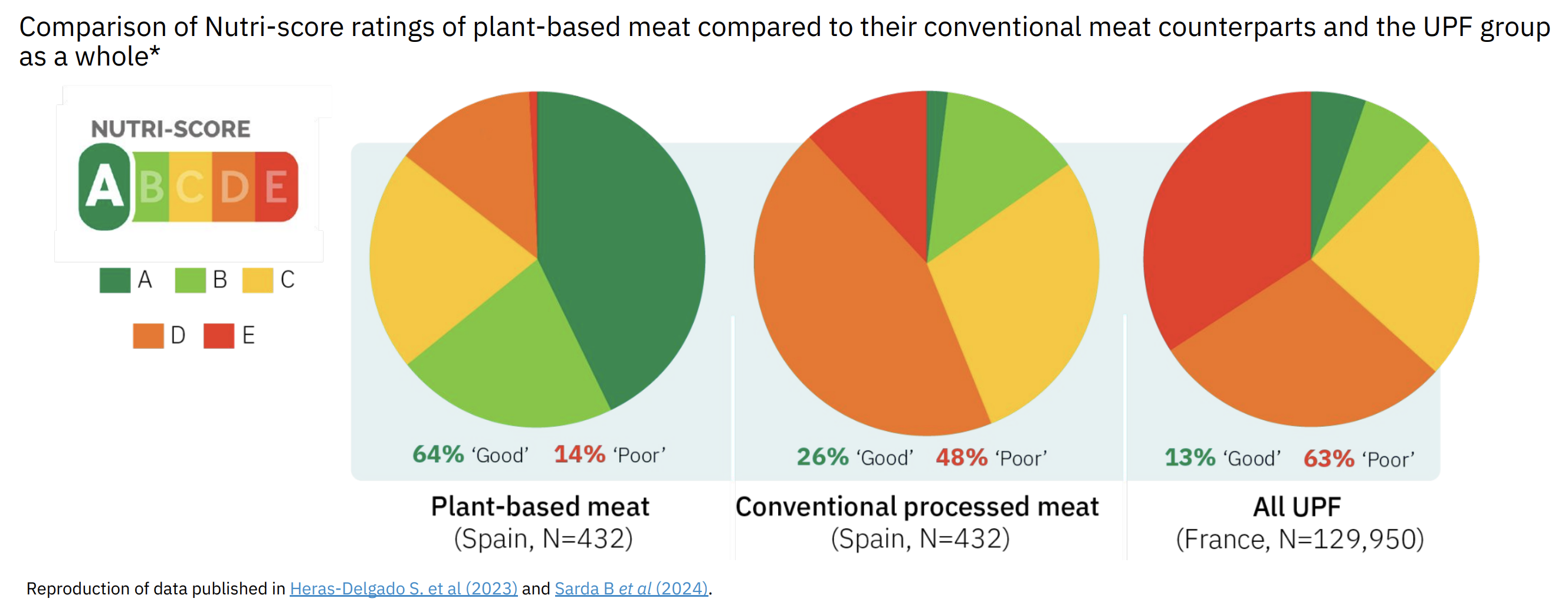
Research around ultra-processed food often overlooks important nuances when it comes to plant-based meat, which can potentially mislead consumers on the health impacts, suggests a new review.
If you’ve been shying away from plant-based meat because it’s too processed, you’re not the only one.
In the UK, half of consumers are worried that these products are too unnatural, while across Europe, 54% avoid eating them due to their classification as ultra-processed. Across the Atlantic, a quarter of Americans say they’d buy more meat analogues if they were less processed or more nutritionally equivalent to meat.
As the ultra-processed food (UPF) conversation takes over our dietary decisions, it has been a major thorn in the side of vegan meat alternatives, sales of which have either slowed in some markets, or fallen alarmingly in others. For instance, in the US, plant-based meat suffered from a 7% decline in retail sales last year.
Throughout this discourse, one key concern has always jumped out: you can’t paint all UPFs with the same brush. Health experts have cautioned against bundling the level of processing with nutrition – these are two different things, and should be treated that way.
Punctuating that point is a new report by the Physicians Association for Nutrition (PAN) and the Good Food Institute (GFI) Europe. It’s an evidence-based resource for healthcare professionals, policymakers, researchers, and patient organisations engaged in protein diversification and public health.
“Although trials have identified several key features of UPFs as a whole that are likely to play a large role in the negative outcomes observed (high calorie density, low fibre and hyper-palatability), plant-based meat has a very different nutritional profile from most UPFs, and these metrics do not generally apply to plant-based meat,” the report points out.
One major finding of the research highlights the need for nuance between processing that diminishes nutritional quality and techniques that enhance it. Some studies suggest that certain processing methods can improve protein quality and bioavailability, and enable beneficial fortification.
It comes at a time when more and more scientists are calling for a transition towards a plant-rich food system amid the mounting climate crisis, while misinformation and misunderstood research are drawing people away from products that make it easier for people to cut back on meat.
The problems with existing UPF studies

Part of the Nova classification developed by a Brazilian research team led by Prof Carlos Monteiro, UPFs are defined as products comprising industrial formulations and techniques like extrusion or pre-frying, and cosmetic substances such as high-fructose corn syrup and hydrogenated oils.
The new research draws on randomised controlled trials and systematic reviews to highlight how plant-based meat can serve as a better-for-you alternative to conventional processed meat, supporting better cholesterol levels, improved diet quality, and modest weight loss.
Macronutrient profiles show that plant-based meat only meets three out of eight criteria used to classify UPFs. In contrast, conventional processed meat ticks seven of them. Moreover, vegan alternatives offer more fibre, less saturated fat, and a similar share of calories from protein.

PAN and GFI Europe point out several limitations in current UPF research, which undermines their relevance to plant-based meat. For starters, most use food diaries from a decade ago, before most modern meat alternatives made it on the shelves. Even for products that existed at the time, hardly any company uses the same recipe or formulation today.
Those food diaries also often fail to separate plant proteins like tofu from meat analogues. And in any case, plant-based meat makes up a “vanishingly small” amount of the food in these datasets. For example, in a widely cited study based on the UK Biobank, these products accounted for only 0.2% of all calories eaten – but media coverage sought to blame “fake meats” instead of the real culprits.
The outcomes are likely caused by the most widely eaten UPFs, the report says – think cakes, sugary drinks, and processed meats, which have a vastly different nutritional profile. It argues that while research using such data links high UPF consumption with greater disease risk, it can’t actually tell us how much is caused by processing and how much by nutritional factors we already understand.
“Studies on the UPF group as a whole likely offer little insight into plant-based meat, and will likely be misleading as to its health impacts,” the report points out. “The best available evidence… suggests that replacing processed meat with plant-based versions could have medically relevant health benefits, most notably reductions in LDL cholesterol.”

How can we improve UPF and plant-based meat research?
“The conversation around ultra-processed foods has become increasingly polarised,” said Roberta Alessandrini, director of PAN’s Dietary Guidelines Initiative and co-author of the guide. “But not all UPFs are created equal. This resource aims to equip professionals with a clearer understanding of where plant-based meat fits in – based on science, not sensationalism.”
The report calls on public health professionals to “challenge misconceptions on processing and plant-based meat”. UPF research is poorly understood by the general public, and limited familiarity with meat alternatives compounds the problem, so more accurate communication is sorely needed.
“Greater emphasis should be placed on the fact that there are multiple pathways to healthier lifestyles – and the most effective interventions are those that can be adhered to,” the guide suggests.

For researchers, the focus should be on diversifying the evidence base for UPFs and plant-based meat. More interventional studies are needed to understand which UPF features drive harm and how to effectively address them, and to explore which qualities of vegan alternatives are associated with beneficial outcomes. Further, behavioural studies can help find the best levers for dietary change.
Meanwhile, policymakers and national nutrition bodies should create dietary recommendations that help people select healthier options and increase consistency across products. This includes guidelines on fortifications, fibre and salt, which can vary across plant-based meat offerings.
“Products meeting these positive thresholds should also be included in national dietary guidance, as is the case in the Netherlands,” the report says.
“Proponents of the Nova framework and of protein diversification should be incentivised to identify where each can have the most impact building a healthier, more sustainable food system, and collaborate to target their work accordingly.”
The post UPF Research is Misleading Consumers About Plant-Based Meat Amid Worsening Climate Crisis appeared first on Green Queen.
This post was originally published on Green Queen.